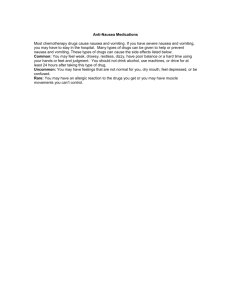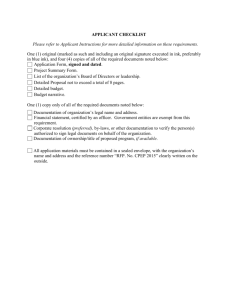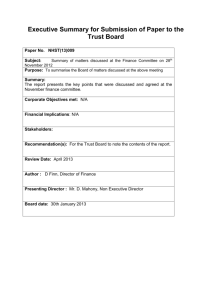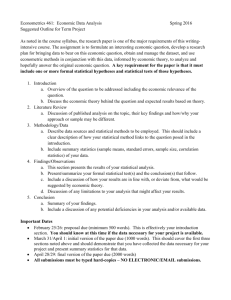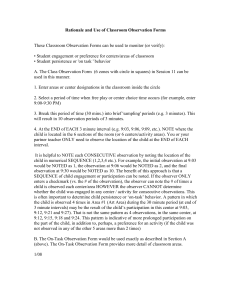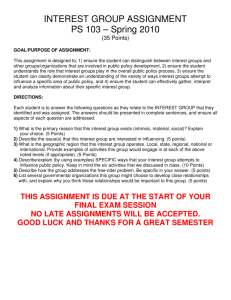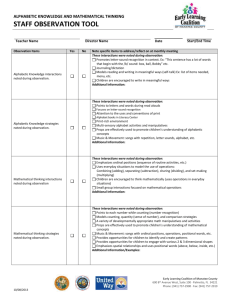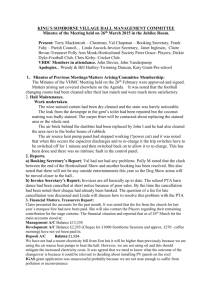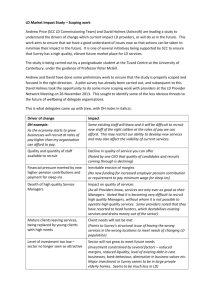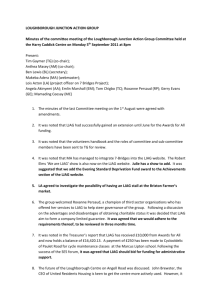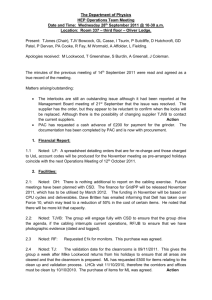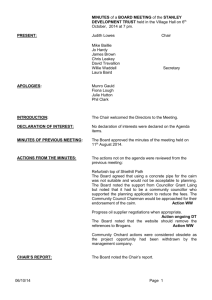H & P 1 - Acusis
advertisement
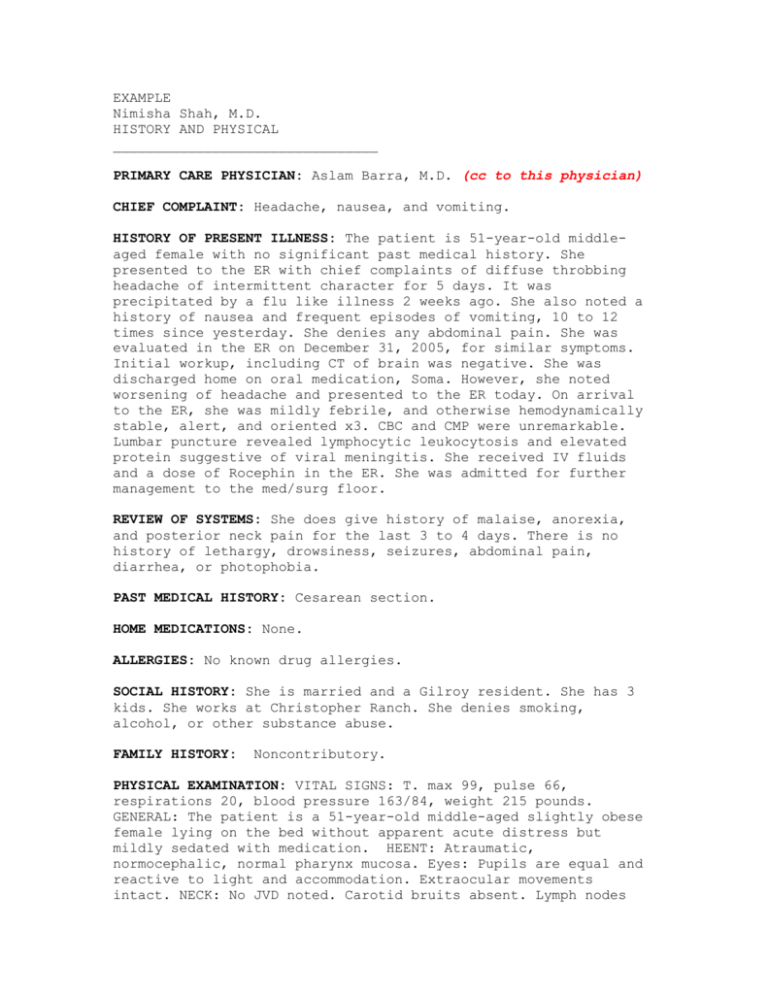
EXAMPLE Nimisha Shah, M.D. HISTORY AND PHYSICAL ________________________________ PRIMARY CARE PHYSICIAN: Aslam Barra, M.D. (cc to this physician) CHIEF COMPLAINT: Headache, nausea, and vomiting. HISTORY OF PRESENT ILLNESS: The patient is 51-year-old middleaged female with no significant past medical history. She presented to the ER with chief complaints of diffuse throbbing headache of intermittent character for 5 days. It was precipitated by a flu like illness 2 weeks ago. She also noted a history of nausea and frequent episodes of vomiting, 10 to 12 times since yesterday. She denies any abdominal pain. She was evaluated in the ER on December 31, 2005, for similar symptoms. Initial workup, including CT of brain was negative. She was discharged home on oral medication, Soma. However, she noted worsening of headache and presented to the ER today. On arrival to the ER, she was mildly febrile, and otherwise hemodynamically stable, alert, and oriented x3. CBC and CMP were unremarkable. Lumbar puncture revealed lymphocytic leukocytosis and elevated protein suggestive of viral meningitis. She received IV fluids and a dose of Rocephin in the ER. She was admitted for further management to the med/surg floor. REVIEW OF SYSTEMS: She does give history of malaise, anorexia, and posterior neck pain for the last 3 to 4 days. There is no history of lethargy, drowsiness, seizures, abdominal pain, diarrhea, or photophobia. PAST MEDICAL HISTORY: Cesarean section. HOME MEDICATIONS: None. ALLERGIES: No known drug allergies. SOCIAL HISTORY: She is married and a Gilroy resident. She has 3 kids. She works at Christopher Ranch. She denies smoking, alcohol, or other substance abuse. FAMILY HISTORY: Noncontributory. PHYSICAL EXAMINATION: VITAL SIGNS: T. max 99, pulse 66, respirations 20, blood pressure 163/84, weight 215 pounds. GENERAL: The patient is a 51-year-old middle-aged slightly obese female lying on the bed without apparent acute distress but mildly sedated with medication. HEENT: Atraumatic, normocephalic, normal pharynx mucosa. Eyes: Pupils are equal and reactive to light and accommodation. Extraocular movements intact. NECK: No JVD noted. Carotid bruits absent. Lymph nodes nonpalpable. LUNGS: Air entry is equal on both sides. No wheezing or crackles heard. CARDIOVASCULAR: S1, S2, regular. No gallops or murmur heard. ABDOMEN: Bowel sounds present, soft. Minimal left lower quadrant tenderness noted. However, guarding, rigidity, and rebound tenderness absent. CENTRAL NERVOUS SYSTEM: Drowsy but arousable. Oriented x3. No obvious focal deficits noted. Cranial nerves II-XII intact. Coordination normal. EXTREMITIES: No pedal edema. Peripheral pulses noted. Cyanosis and clubbing absent. Homans sign negative. PERTINENT LABORATORY FINDINGS: CSF and initial tube color was hemorrhagic; tube #4 appears clear. WBC 680, polys 35, lymphocytes 55, eosinophils 6, RBC 70. Meningitis antigen panel including streptococcal pneumonia, group B, streptococcal antigen, influenza hemophilia negative, Gram-stain, no organisms noted, glucose 28, and protein 147. WBC 9.2, hemoglobin 13.4, hematocrit 41, platelets 319, sodium 140, potassium 4.2, chloride 99, BUN 31, glucose 131. Total bilirubin 0.4, AST 45, ALT 35, amylase 73, lipase 80. CT of brain done on December 31, 2005 is unremarkable. ASSESSMENT: This patient is a 51-year-old middle-aged female with history of diffuse headache, nausea, vomiting. She is noted to have lymphocytic leukocytosis in cerebrospinal fluid along with elevated protein, suggestive of acute viral meningitis. She is also noted to have mild dehydration secondary to gastritis, requiring IV hydration and supportive treatment. PLAN: 1. Admit to med/surg. 2. IV hydration with normal saline. 3. IV Phenergan p.r.n. for nausea and vomiting and proton pump inhibitor, Protonix. 4. Tylenol p.r.n. 5. Pain control with Demerol p.r.n. 6. Obtain cerebrospinal fluid PCR for vital studies, antiviral being more common etiology, not requiring any antiviral treatment at this moment. Will also follow PCR studies for HSV and if HSV, EBV, and VCV are positive may consider acyclovir. 7. Obtain blood cultures, urine culture and sensitivity. 8. Obtain chest x-ray. 9. Obtain infectious disease consult with Dr. Charney in a.m.
